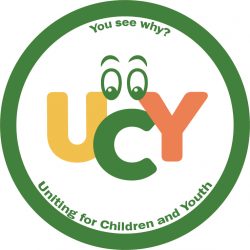Question 3 – Zone 1 Responses
Contents
The Question in brief
Responses from:
– Jon Flemming
– Lynn Scott
The Question in Brief
This question comes from Charlotte Dwyer and Ny Holmes, two Grade 11 Ottawa secondary school students who recently organized Nepean High School’s successful walkout against Ford’s changes to the curriculum.
Their Question
What steps are you going to take to ensure that students feel they are heard in regards to their involvement in THEIR curriculum? (See full question: Our Democratic Values.)
Jon Flemming
First of all I’d like to address the Board’s announcement from earlier today regarding the hiring of a new Director of Education during the election period. This move by a lame duck board completely undermines the election process and is utterly undemocratic. Instead of hitting pause on the process until the peoples’ voices were heard in the upcoming election, they rammed this decision down every parent, student, teacher and voters’ throat. It speaks volumes regarding their respect for openness, transparency. This should never of happened.
In direct response to the question: Schools and administrators have to find ways to incorporate student opinions, in effect to partner with students as stakeholders in their own learning, especially in high school. Studies show when this happens academic outcomes improve, and that’s the entire thrust of my candidacy. I think there are several things the OCDSB can and should do to this end. They include:
- Regularly soliciting students’ input and feedback
- Engaging students in assessing their schools and teachers
- Include authentic student representation on leadership teams that make decisions on curriculum.
Students have a voice and we should be listening to it.
Lynn Scott
From my time as mentor to some of our student trustees, and my time spent with the OCDSB’s Student Senate, I know that we need to pay attention to what students are telling us, because they offer us straightforward advice and insights into many of the issues the school board must address. When visiting secondary schools, I appreciate my occasional opportunities for face-to-face in-depth conversations with individual students on specific topics. However, the OCDSB needs to improve its mechanisms and processes for ensuring that the student voice is heard in the right places and at the crucial times. Despite great efforts in the past four or five years on the part of the Student Senate, the role of the Student Senators is still not as well known to other students in their schools as it should be. I would encourage our school administrators and teacher advisors to consider ways to help raise the profile of Student Senators and Student Trustees in their schools. The role of student representative in school councils is also underutilized, and school councils can be encouraged to be more proactive in seeking student representation and making student voice a key part of their mandate in providing advice to the school and the board.
In the classroom, we’re still in a slow process of culture change, where the nature of dialogue between students and teachers and among students is evolving to give students more opportunities for self-advocacy, more choices in how to learn, what to learn and how to demonstrate that learning. Again, however, we need to ensure that this evolution continues, and provide students better ways to bring general concerns about curriculum to the attention of the school administration and to trustees. For example, many schools have clubs oriented towards environmental issues, but there is currently no clear mechanism to connect concerned students school-to-school or to coordinate input on these issues to the senior staff and trustees of the board or to other levels of government. Similarly, the variety of student clubs that deal with social justice issues, gender identity, etc. could be better coordinated to provide input on school board policy decisions. We need to find the right mechanisms for this to happen.
I would like to see the Civics curriculum improved, to give students a better understanding not just of how government (large or small) works, but also of ways through which their voices can be heard. I would also like to do more to encourage students to participate in public consultations, such as the provincial consultation on education that is just beginning — more information at https://www.ontario.ca/page/for-the-parents — (and perhaps it’s telling, that this provincial consultation is billed as “for the parents” when it really needs to be for the students).

